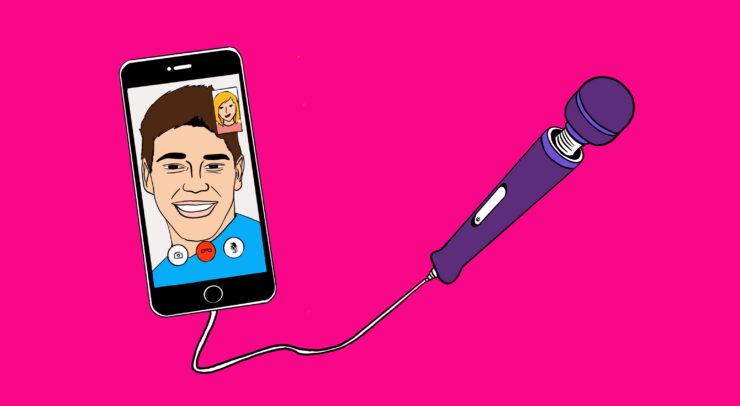Dear Di,
I had some serious troubles in the sheets last night. When my partner and I tried to hookup, I couldn’t get hard. We tried everything, but it just wasn’t working. I don’t think it’s got anything to do with my partner, because I still feel super attracted to them. What’s going on?
—Soft and Confused
Dear SAC,
I know you’re thinking it: holy shit, I’m a young and bright university student with erectile dysfunction (ED). Worst case scenario, you could be right (but that’s nowhere near the end of the world—we’ll get to that later on). A lot of different things could be happening, but the good news is there’s a ton of solutions.
First thing’s first: were you drunk or high?
Even just a couple of pints can take a huge toll on your sexual functioning. Alcohol is, after all, a central nervous system depressant, meaning it inhibits some parts of the system from functioning normally. Nerve endings are less sensitive and sensations are reduced, creating a major roadblock to arousal, according to a study published in the Journal of Psychoactive Drugs in 2001.
On the other side of intoxication, a great paradox: consuming drugs like cocaine or MDMA will likely make you wildly horny, but they’re known to prevent your member from cooperating.
Cocaine and MDMA are both vasoconstrictors, meaning they reduce blood flow through your body, making it more difficult for your blood to make its way to the penis.
Prescribed drugs can have just as much of an impact. Popular antidepressants such as Prozac, Zoloft and Paxil are linked to lowered libido in the body, making an erection harder (pun intended) to achieve.
Prescriptions pills to treat high blood pressure, allergies, inflammation and muscle pain have been linked to impotency as well. If you’re concerned with the side effects of these medications, speak to your doctor and consider choosing a different kind of medication.
That being said, my first pointer is to try laying off the drugs and alcohol, next time you hookup. It may solve your problem altogether.
Another thing to note is that mental state can play a large role in arousal. Nervousness and anxiety surrounding a sexual encounter can prevent you from “getting in the zone,” so to speak.
It’s probably not surprising that physical health plays a part too. ED is common in people with diabetes, usually rooted in damaged nerves and/or blood vessels caused by low or high blood sugar levels.
Heart disease is also a regular culprit. As we’ve learned, an erection is all about blood flow. Heart disease, characterized by narrow or clogged blood vessels, does not bode well with a hard-on.
If you are developing ED, it’s not the end of the world, nor is it uncommon. A 2013 study from the Journal of Sexual Medicine found that ED impacted around 25 per cent of adults under 40. Getting tested for ED is a simple and relatively painless process, often involving a physical exam, a blood and/or urine test, or a counselling session.
Treatment options for ED are plentiful. The most popular approach is prescribed medication. Other approaches include using a penis pump and tension ring to draw blood into the penis and keep it there, while some people choose to undergo surgery and have a penile implant placed into the penis, although this is usually reserved until other treatment methods have been tried and tested.
If your ED is being caused by a physical health condition, it may be greatly helped by medical treatment, lifestyle changes, and healthy eating habits. If the problem is mental, sex therapy or simply talking to a friend, family member or counsellor should provide relief.
Above all, if the problem does persist SAC, be sure to visit your doctor to get tested and choose which treatment approach is best for you. Remember, if it is ED, it’s not as uncommon as you may think.
Love,
Di






